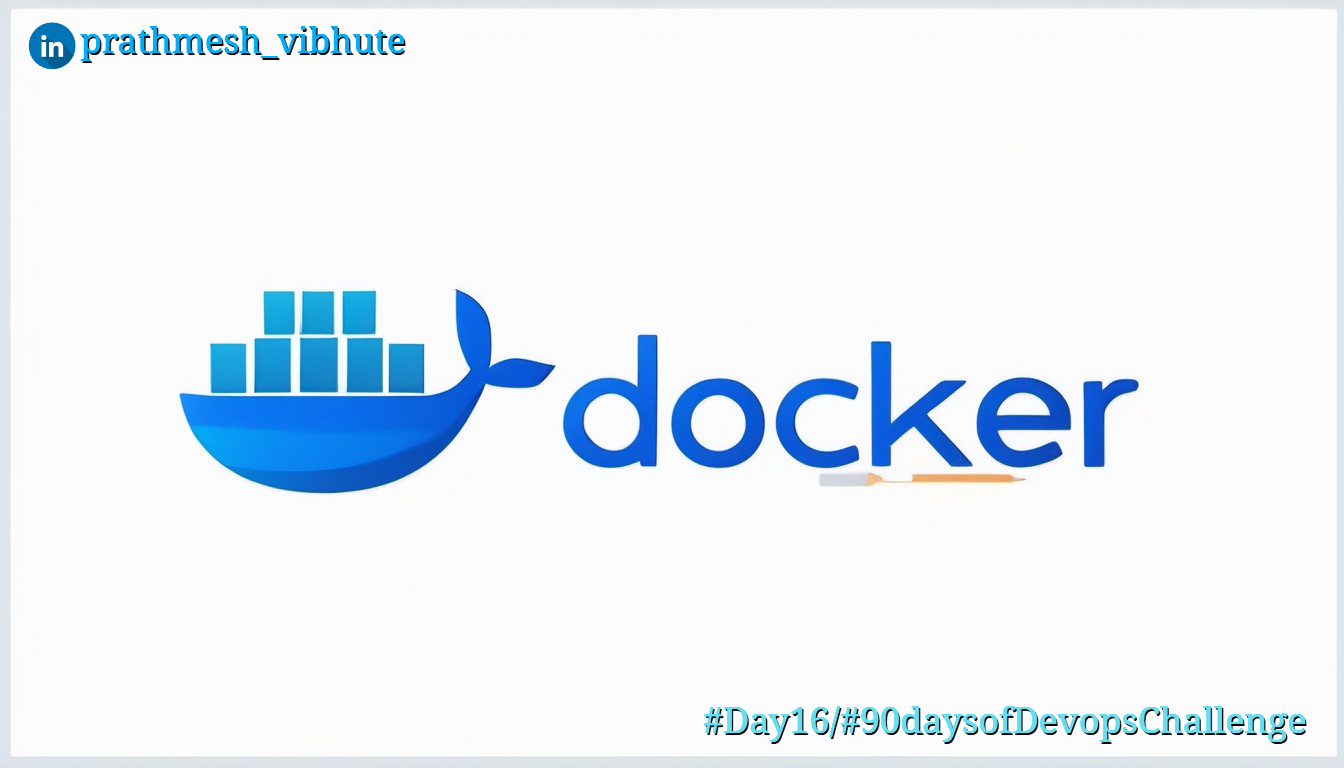Day 16 : Docker for DevOps Engineers.
 Prathmesh Vibhute
Prathmesh Vibhute
In today's rapidly evolving landscape of software development and deployment, efficiency and scalability are paramount. DevOps engineers play a crucial role in streamlining the development-to-deployment pipeline, and Docker has emerged as a cornerstone technology in this process. Docker provides a standardized way to package, distribute, and run applications, making it an indispensable tool for DevOps practitioners.
Introduction to Docker
Docker is a containerization platform that allows developers to package applications and their dependencies into lightweight, portable containers. These containers can then be deployed consistently across different environments, from development to production, without worrying about compatibility issues or dependency conflicts. By encapsulating applications in containers, Docker enables greater flexibility, scalability, and efficiency in the software development lifecycle.
Basic Docker Tasks
1. Starting a New Container
To start a new container, you can use the docker run command followed by the name of the image you want to run. For example:

This command starts a new container based on the Ubuntu image and opens an interactive shell within it.
2. Inspecting Containers and Images
You can use the docker inspect command to view detailed information about a container or image. For example:
sudo docker inspect <container_id_or_name>
sudo docker inspect <image_id_or_name>
3. Listing Port Mappings
To list the port mappings for a container, use the docker port command:
sudo docker port <container_id_or_name>
4. Viewing Resource Usage Statistics
To view resource usage statistics for one or more containers, use the docker stats command:
sudo docker stats <container_id_or_name>

5. Viewing Processes Inside a Container
You can use the docker top command to view the processes running inside a container:
sudo docker top <container_id_or_name>

6. Saving and Loading Images
To save an image to a tar archive, use the docker save command:
sudo docker save -o <output_tar_file> <image_id_or_name>
And to load an image from a tar archive, use the docker load command:
sudo docker load -i <input_tar_file>
Conclusion :
Docker has become an indispensable tool for DevOps engineers, enabling them to build, ship, and run applications with unprecedented ease and efficiency. By mastering Docker's fundamentals and exploring its advanced features, DevOps practitioners can significantly enhance their ability to manage complex software environments and drive innovation in their organizations.
I'm confident that this article will prove to be valuable, helping you discover new insights and learn something enriching .
thank you : )
Subscribe to my newsletter
Read articles from Prathmesh Vibhute directly inside your inbox. Subscribe to the newsletter, and don't miss out.
Written by
